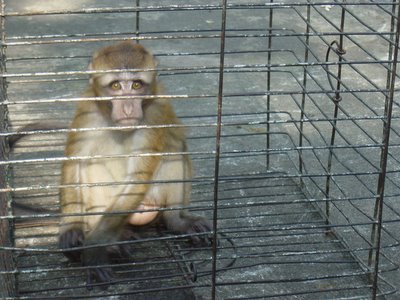Exotic pets, exotic problems
Keeping exotic, unconventional pets can be challenging. Sometimes people realize that the cute, cuddly pet they have bought becomes more than they can handle. The pets I have and will list in this blog can be kept as pets as long as one has suitable facilities and is acquainted with the species’ needs. Still, a key component of this blog is responsible pet care. Therefore I feel obligated to post a warning.
The pets I have are not endangered. However, many species have been pushed to extinction by the illegal pet trade. Gibbons are a prime example, as are orangutans. Nowadays it is possible to buy captive-born macaws, but many macaw species are severely endangered. Here are the general rules I follow when buying a pet, which I suggest you follow. Whenever buying a pet from a different country I insist on buying captive born animals. Not only does this make it less likely that I will buy an animal that is sick or will refuse to eat, but it ensures that I am not directly harming ecosystems. Also, it usually helps if you see your new pet’s parents, especially is you intend to breed it. Living in the
Another major problem with exotics is that sometimes they escape. Releasing a pet can never be responsible. However, even with tremendous care, at some point one of your exotics probably will escape. For example, there appears to be an established population of Burmese pythons in
Finally, the macaque in the photo above is currently living in a miniscule cage in a Wildlife Rescue Centre in
It is possible to keep exotic, unconventional pets responsibly. Please read up on the species you intend to buy well before you do so. Don’t just buy a whale on a whim, if you see what I mean.



1 Comments:
Well written Gabriel.
I think it is of the utmost importance, that before buying a pet, one reads up and knows what one is letting oneself in for, for the benefit of both pet and new owner. It is also very very important NEVER EVER to buy endangered species and fuel the illegal pet trade.
As to pedigree dogs.... well i have three boxers and in other countries you do find responsible breeders. I do agree that crossbreeds have hybrid vigour and are less susceptible to diseases than pure breeds but... I would certainly not buy anything from a puppy mill as this increases the hardship for both the adult and puppy canines in the mills, but i would adopt rescue mill canines, well knowing that they might have serious medical illnesses.
Keep up the good work.
I will visit often.
Marthese from Malta
Post a Comment
<< Home